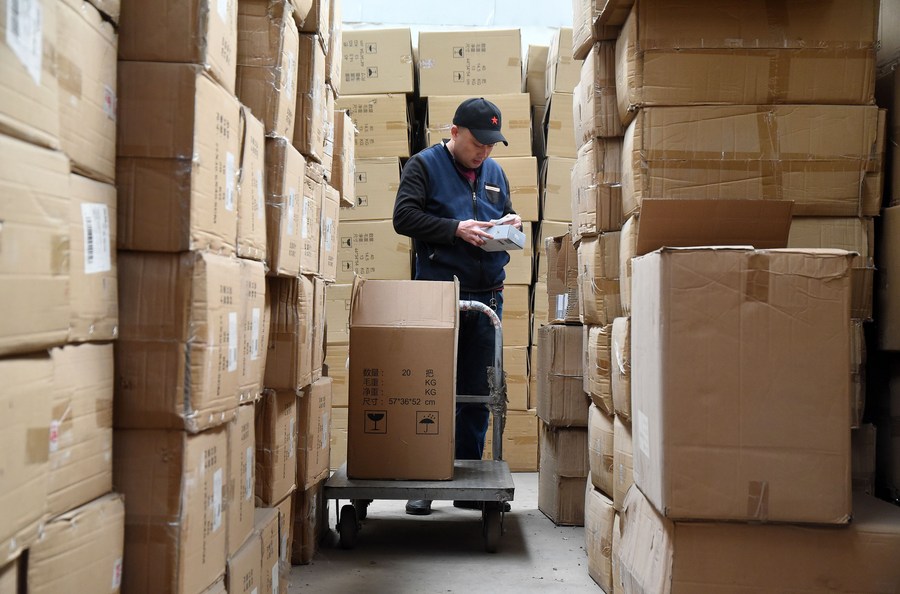China's Singles' Day shopping festival expected to break sale records amid COVID-19 pandemic: UK media

A staff member works at a warehouse in a company in Pengcheng Town of Handan, north China's Hebei Province, Nov. 4, 2020. (Photo by Hao Qunying/Xinhua)
With the help of "revenge spending" from the COVID-19 pandemic, sales of Wednesday's "China's Singles' Day" online shopping festival, which is similar to "Black Friday" in Western countries, is expected to break new records, the BBC reported Tuesday.
Noting that "China's Singles' Day", which falls on Nov. 11 annually, is the world's biggest 24-hour online shopping event, with 1.9 billion products ordered and delivered last year, the BBC said it is thought that pent-up demand from the pandemic will help to break new sale records.
Robot cleaners, vacuums and toolboxes are all expected to be popular items for shopping carts. And luxury brands are also hoping to get a boost, as millions of Chinese have been unable to travel overseas because of the pandemic, said the BBC.
"We anticipate ongoing international restrictions will cause a meaningful shift in Chinese consumers buying luxury online," Michael Norris at the market research firm AgencyChina told the BBC.
"Luxury brands have also risen to the occasion, with an estimated doubling in the number of luxury brands participating in Singles' Day," Norris was quoted as saying.

The giant screen shows that Tmall, formerly Taobao Mall, reached 268.4 billion yuan worth of sales on the 2019 Singles' Day at the media center in Alibaba Group's Xixi Park in Hangzhou, east China's Zhejiang Province, Nov. 12, 2019. (Xinhua/Huang Zongzhi)
Last year, China's Singles' Day sales on Alibaba's e-commerce platform Tmall reached more than 268 billion yuan (about 40.5 billion U.S. dollars), double that of Black Friday and Cyber Monday combined.
This year, Singles' Day kicked off early with an online selling spree between Nov. 1 to Nov. 3 to cater to the growing demand from Chinese consumers. Wednesday will feature more than 350,000 local and international brands and even includes cars and houses for sale, said the BBC.
First designed by Tmall on Nov. 11, 2009, the online shopping event has developed from a domestic online sales promotion to a global shopping carnival over the past decade.